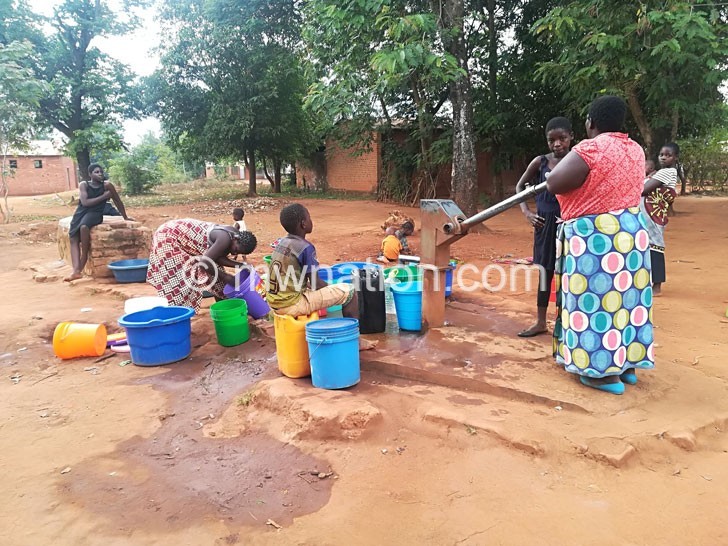Survey exposes unsafe borehole water

A nationwide water points mapping exercise by Malawi Government and other stakeholders has revealed that people are drinking unsafe borehole water in some parts of the country, putting their health at risk.
Climate Justice Fund-Water Futures Programme (CJF) and Baseflow together with the Malawi Government recently conducted a survey in 23 districts of the Central and Southern regions to, among others, establish the number of water points installed in the country.
Preliminary findings indicate that people in the Shire Valley and other districts are drinking water with high salt content which is a health risk.
Baseflow country team leader Muthi Nhlema said in an interview last Thursday that Shire Valley communities are consuming borehole water with high sodium concentration.
He said: “One borehole had a salinity is 16 500 micromeds, which is five times the recommended amount of 3 500. But now the question is why it was put there.
“If you consume too much salt it affects your blood pressure (BP). It even affects your teeth because the fluoride level is not consistent with government standards.”
The mapping exercise has shown preliminary results which are indicating that there are 55 000 improved and 10 000 unimproved water points in 23 Central and Southern region districts which, according to Nhlema, show there are more water points than the 72 000 that government estimated in 2013.
He said: “One contributing factor to the high sodium in borehole water is that many boreholes are not dug deep enough to tap pure water from the ground, which can be attributed to poor technology used in the process.”
But in an interview, Ministry of Agriculture Irrigation and Water Development director of water supply Emma Mbalame said government is working with its partners to improve water infrastructure using new technologies.
“We will be able to use advanced technologies. Officers have been trained and we are assured that we will have equipment and engage a sophisticated way of doing things so that in the end, we should manage our economies of scale. ”
On his part, CJF director Robert Kalin said there is need for government to measure water infrastructure resources if it is to manage them well.
He said: “This is needed to understand if water points have problems.” Kalin said Malawi still has the opportunity to manage its water resources with the birth of the National Water Resources Authority, which will manage resources also considering the country’s growing population currently at 17.5 million.





